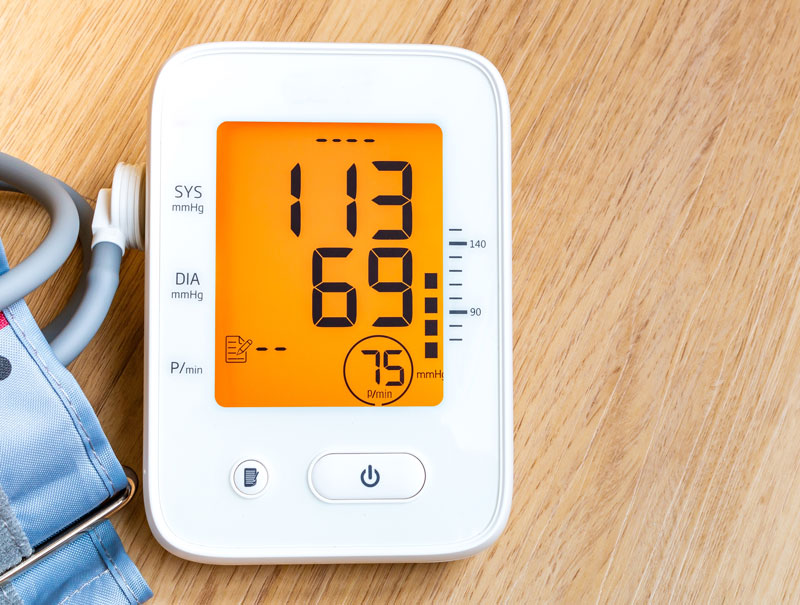Why patient-centricity is essential to accelerate rare disease clinical research
Posted: 20 May 2024 | Cezary Statuch (Head of Medical Affairs International and Japan at Alexion Pharmaceuticals) | No comments yet
There is an urgent need for novel treatment options for people living with rare diseases, but carrying out clinical research in this field is notoriously difficult. As Clinical Trials Day approaches, Cezary Statuch, Head of Medical Affairs International and Japan at Alexion Pharmaceuticals, highlights how adopting patient-centric approaches can help overcome the unique challenges of designing, recruiting and conducting clinical trials for rare diseases.


Rare diseases affect up to 36 million people in the EU, and as many as 400 million people globally.1,2 they are often progressive, life-limiting and incurable. Half of people diagnosed with a rare disease are children, 30 percent of whom die before they reach the age of five.3
Significant unmet needs
The path to diagnosis of a rare disease is complex, taking on average five to eight years from the onset of symptoms before a patient receives an accurate diagnosis.4 In some countries, limited access to diagnostic tools and specialised care, combined with low levels of awareness, can mean this takes even longer.
Even with a diagnosis, patients continue to face barriers to care. With no meaningful treatment options for 90 percent of the 10,000 known rare diseases, it is clear there is an essential and urgent need for innovation in the field.5,6
Clinical trials are essential for the safety and efficacy of novel therapies to be established. They are the cornerstone of the regulatory review process and play a critical role in how the value of a new therapy is assessed by health systems and payers. Yet, there are inherent challenges in rare disease clinical research.
Engaging with patients and caregivers is key to addressing these challenges. Gaining a deep understanding of rare diseases and how they impact peoples’ lives is critical for designing and executing meaningful trials that meet the unique needs of the patient population.
Deep understanding of rare diseases is key to progressing innovation
Clinical research is always complex, but there are a host of additional complexities that need to be navigated in rare disease research – primarily stemming from the fact that these diseases are often not well understood, with small patient populations.
There are often significant gaps in medical and scientific information regarding rare diseases, including a lack of detailed knowledge of their natural history. Furthermore, the sources of information that are available for more common conditions – assays, endpoints, patient registries, regulatory precedent – often don’t exist.
Gaining a deep understanding of rare diseases and how they impact peoples’ lives is critical for designing and executing meaningful trials that meet the unique needs of the patient population.
This can make establishing meaningful endpoints for clinical trials problematic. For example, without understanding the natural trajectory of disease progression without medical intervention, or against the standard of care, for comparison, it can be challenging to determine the effect of a novel therapy. There is often no precedent or established framework to follow.
Thus, developing a deep understanding of rare diseases and combining this with the agility to innovate and adopt new R&D approaches is essential to drive innovation forward.
Harnessing new technology
Applying artificial intelligence (AI) and machine learning can increase rare disease understanding, with powerful tools emerging to potentially help shorten the time to diagnosis and identify and validate potential therapeutic targets more efficiently. Given that 80 percent of rare diseases have a genetic origin,7 these tools may also aid the development of gene and cell therapies, which are rapidly emerging as a promising new route for delivering the breakthroughs patients so urgently need.
Navigating the complexities of small patient populations
Compared to more common diseases, rare-disease patient populations are small and dispersed. This creates unique barriers to recruiting and retaining patients for trials. In addition, the specificity of inclusion criteria can further narrow the pool of eligible patients.
As a result, enrolling patients in clinical trials is seen by pharmaceutical industry leaders as one of the biggest barriers to the development of potentially transformative medicines for rare diseases. In fact, one-quarter of rare disease trials between 2016 and 2020 were terminated due to low accrual rates.8
Using RWE in rare disease drug development: effective innovations with historical controls
Standard clinical trial designs are not always appropriate for diseases with small patient populations to generate adequate safety and efficacy data. Alternative approaches offer the potential to inform the efficacy and safety of rare disease treatments by reducing the size or number of trials, while also reducing development programme time. Innovative trial designs can include complex adaptive designs, enrichment trials, multi-arm multistage trials, seamless trials, and N-of-1 (single-patient) studies.
When designing trials for small populations, experience in navigating the complexities of rare diseases and learning from the wider research community is vital. It is also important to consider the impact of alternative clinical trial designs on regulatory decision making and how collaboration between researchers and regulators for innovative trial designs has the potential to contribute to accelerating the progress of novel therapies towards patients.
Patients must be our guide
Researchers have a profound responsibility to ensure clinical trials meet the needs of the patient population and are scientifically rigorous and clinically meaningful. Only by designing trials around patients can the best results be achieved for clinical research programmes, and ultimately for delivering innovations to patients.
Unlike in other therapeutic areas, the departure of just one patient from a rare disease trial can have a significant impact on the conduct and outcome of that trial. Direct feedback from individual patients and caregivers can help shape trial protocols to ensure clinical trials are accessible and conducive to long-term participation; for example, by developing tools and resources to help patients understand the expectations of the study and navigate trial sites. These insights can also inform how trial outputs are defined and evaluated, ensuring they reflect meaningful outcomes.
Every day counts; every patient counts
Digital health technologies (DHTs) have significant potential for enabling clinical research to focus on patients’ needs.


Digital health technologies (DHTs) can accelerate clinical trial timelines
As well as improving the patient experience of clinical trials, DHTs can accelerate clinical trial timelines. The average length of time from the start of clinical testing to approval of a novel treatment is 7.1 years.9 For patients living with serious, progressive rare diseases with no approved treatment options, every day counts. Exploring the potential of DHTs to reduce the amount of time it takes for innovations to reach patients should be a priority for the research community.
DHTs can also enable clinical researchers to decentralise clinical trials, giving the potential to increase the geographic and socioeconomic diversity of the clinical trial population. Notably, they could help to expand the global clinical trial footprint for rare diseases beyond Europe and the US, into Latin America, Asia and the Middle East where rare disease ecosystems are now emerging and developing rapidly.
Complexity demands collaboration
With rare diseases being inherently unique and not well understood, this creates a complex research environment. As a result, developing and enabling access to transformative medicines for people living with rare diseases requires collaboration with patients, healthcare professionals, advocates, investigators, pharmacists, health authorities, policymakers and others. It also requires the commitment, tenacity and ingenuity to close the knowledge gaps in rare diseases; deepen our medical and scientific understanding of these conditions; tackle the issue of delayed diagnosis; and establish healthcare policies and systems that can enable innovation to thrive and overcome health inequalities.
From whichever angle each of us comes to the challenge of clinical research in rare diseases, there is a shared recognition that patients are urgently waiting. Delivering effective, meaningful treatments to patients faster is the priority. By working together and putting patients at the centre of clinical research, we can accelerate towards this.
About the author
Cezary Statuch is currently the Head of Medical Affairs, International and Japan at Alexion, a global biopharmaceutical company focused on developing life-changing therapies for people living with rare diseases. He has spent more than 30 years working in the pharmaceutical industry, holding positions in clinical research operations, global drug development and medical affairs.
Cezary is actively engaged in the training and education of physicians in the healthcare industry across many emerging and established markets. He is a founding member of the China Medical Affairs Network, and is also a member of the Executive Committee of the Medical Affairs Professional Society.
References
- European Commission. Public Health – Rare Diseases. Available at: https://health.ec.europa.eu/european-reference-networks/rare-diseases_en
- Wakap, et al. Estimating cumulative point prevalence of rare diseases: analysis of the Orphanet database. European Journal of Human Genetics (2020) 28:165–173. https://doi.org/10.1038/s41431-019-0508-0
- Global Genes. Rare Disease Facts. Available at: https://globalgenes.org/rare-disease-facts/
- Rare-X. (2022). The Power of Being Counted Report. Available at:
- https://rare-x.org/wp-content/uploads/2022/05/be-counted-052722-WEB.pdf
- Kaufmann, et al. From scientific discovery to treatments for rare diseases – the view from the National Center for Advancing Translational Sciences – Office of Rare Diseases Research. Orphanet Journal of Rare Diseases (2018) 13:196. https://doi.org/10.1186/s13023-018-0936-x
- Rare-X. (2022). The Power of Being Counted Report. Available at: https://rare-x.org/wp-content/uploads/2022/05/be-counted-052722-WEB.pdf
- Elliott ZT, et al. Accrual-Monitoring Practices for Various Disease Trials among AACI Member Cancer Centers. Clinics and Practice. 2022 Aug 31;12(5):692–700.
- Deloitte. Deloitte pharma study: Drop-off in returns on R&D investments. Available at: https://www2.deloitte.com/ch/en/pages/press-releases/articles/deloitte-pharma-study-drop-off-in-returns-on-r-and-d-investments-sharp-decline-in-peak-sales-per-asset.html.









